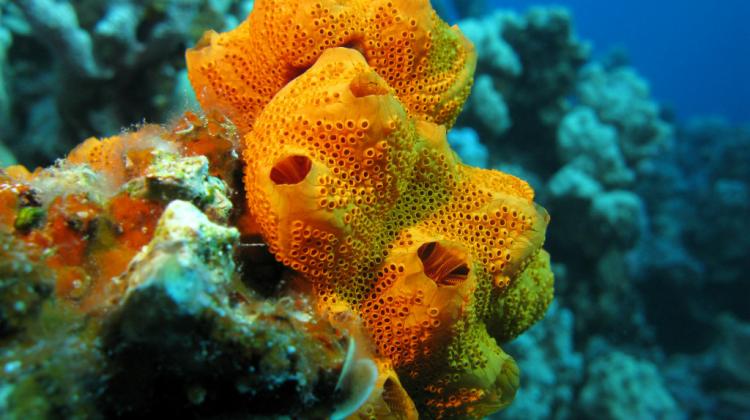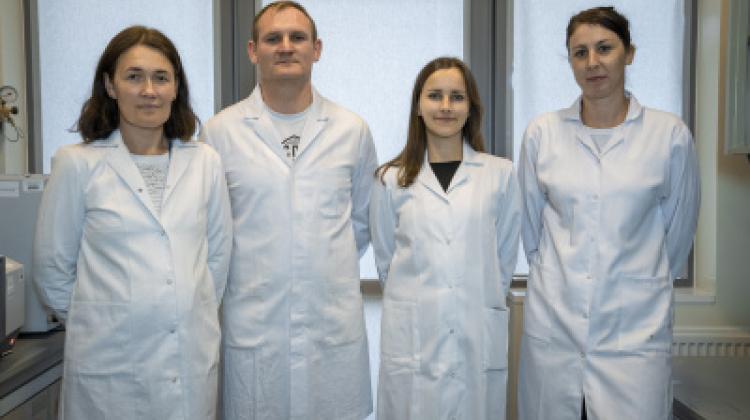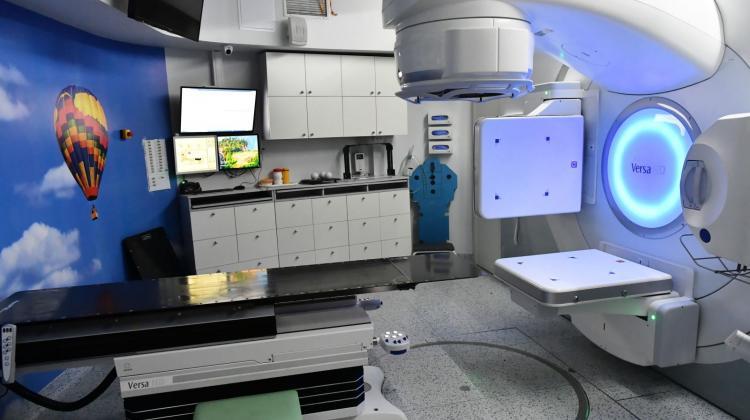Anti-cancer compounds hidden in the deep sea

Marine cyanobacteria, sponges, crustaceans hide compounds useful in the fight against cancer and bacteria. Shaped by millions of years in nature, they have almost no side effects. Scientists have now reached into the depths to bring out these valuable substances.
"The seas and oceans are the habitat of numerous organisms that are very poorly known or undiscovered at all. They produce many compounds that have very important and interesting properties" - told PAP Prof. Grzegorz Wegrzyn from the University of Gdańsk.
Scientists from 19 countries participating in the international Marex project extracted various organisms from depths of the sea to look for biologically active substances. These are used in many areas, from cosmetics to biotechnology and the production of medicinal substances that help in the fight against cancer and bacteria.
"Naturally occurring compounds are highly desirable. Nature has been working on them for millions of years, which is why they not only have such beneficial properties, but they are usually also less harmful and have fewer side effects than artificial compounds" - explained Prof. Wegrzyn, whose university also took part in the research.
Scientists collect various marine organisms, such as: cyanobacteria, crustaceans, sea anemones, sponges and tunicates. "At the moment we have hundreds, if not thousands, of biologically active extracts obtained from these organisms. Some are very promising" - the scientist told PAP.
In the Baltic, Polish researchers were able to identify three most interesting group of bioactive compounds. The first group are compounds that inhibit the growth of bacteria and have antibiotic properties. "We know that now there are bacteria that are resistant to all known antibiotics. We are looking for compounds that destroy so-called bacterial biofilm, a membrane through which antibiotics can not pass. If we destroy the membrane, the bacteria will be susceptible to antibiotics" - explained Prof. Wegrzyn.
The second group of substances stimulates the growth of bacteria. Such compounds can be used by biotech companies, which use bacteria for the production of amino acids and enzymes. They have hundreds of litres of bacterial cultures. With the new compounds, bacteria growth rate could increase by tens of percent.
In the waters of the Baltic Sea, researchers have also found compounds with of anticancer properties. "We have extracts that inhibit the growth of cancer cells but do not inhibit the development of healthy cells" - said Prof. Wegrzyn. In addition, researchers have found enzymes that can be used in the production of cosmetics and detergents.
In addition to the organisms living in the Baltic Sea, scientists from the University of Gdańsk also examined samples of water from the Atlantic, Aegean Sea, the Indian Ocean and the Pacific.
Each member of the consortium collected marine samples and examined them for certain content. Researchers would usually simply isolate active compounds of marine organisms, prepare extracts and determine their properties. This method, however, had several drawbacks.
"Even if we find an interesting compound that, for example, kills cancer cells, the problem is that at some point the extract runs out. How do we find the same organism again? Even if you collect them from the same place, it\'s no longer the same thing. Production of each compound depends on the conditions in which the organism lived, for example, ambient temperature. If you do not isolate a sufficiently large amount of the extract, it can turn out that your interesting find is lost because you cannot reproduce exactly the same conditions" - described Prof. Wegrzyn.
For these reasons, Polish scientists use a slightly different method. When they already have a sample of cyanobacteria, for example, they do not make an extract, but first isolate its DNA. Then they chop genetic material into small pieces and put these pieces in bacteria. "We already have thousands of bacterial clones, each of which produces something else, on the basis of this piece of DNA, which we delivered from marine organisms" - explained the researcher.
These active compounds are produced by specific bacterial cells. If scientists see that one of them produces a substance with interesting properties, they can still reproduce it. This gives continuous access to valuable biologically active substances.
"For a long time it was unclear whether our method had a chance of success. It could turn out that the bacteria take foreign DNA and don’t do anything with it. We have demonstrated, however, that this method has potential and we are able to isolate substances which antibacterial or anticancer properties" - assured Prof. Wegrzyn.
The project, which, in addition to Polish, involved Finland, Slovenia, Spain, Belgium, Lebanon, Chile and India, continued four years and ended on 31 July 2014. "Further research should show how the compounds we have discovered can be used in practice" - noted Prof. Wegrzyn. Now scientists are trying to obtain more grants and find business partners interested in implementing their work.
PAP - Science and Scholarship in Poland, Ewelina Krajczyńska
ekr/ mrt/ gma/
tr. RL
Przed dodaniem komentarza prosimy o zapoznanie z Regulaminem forum serwisu Nauka w Polsce.


















